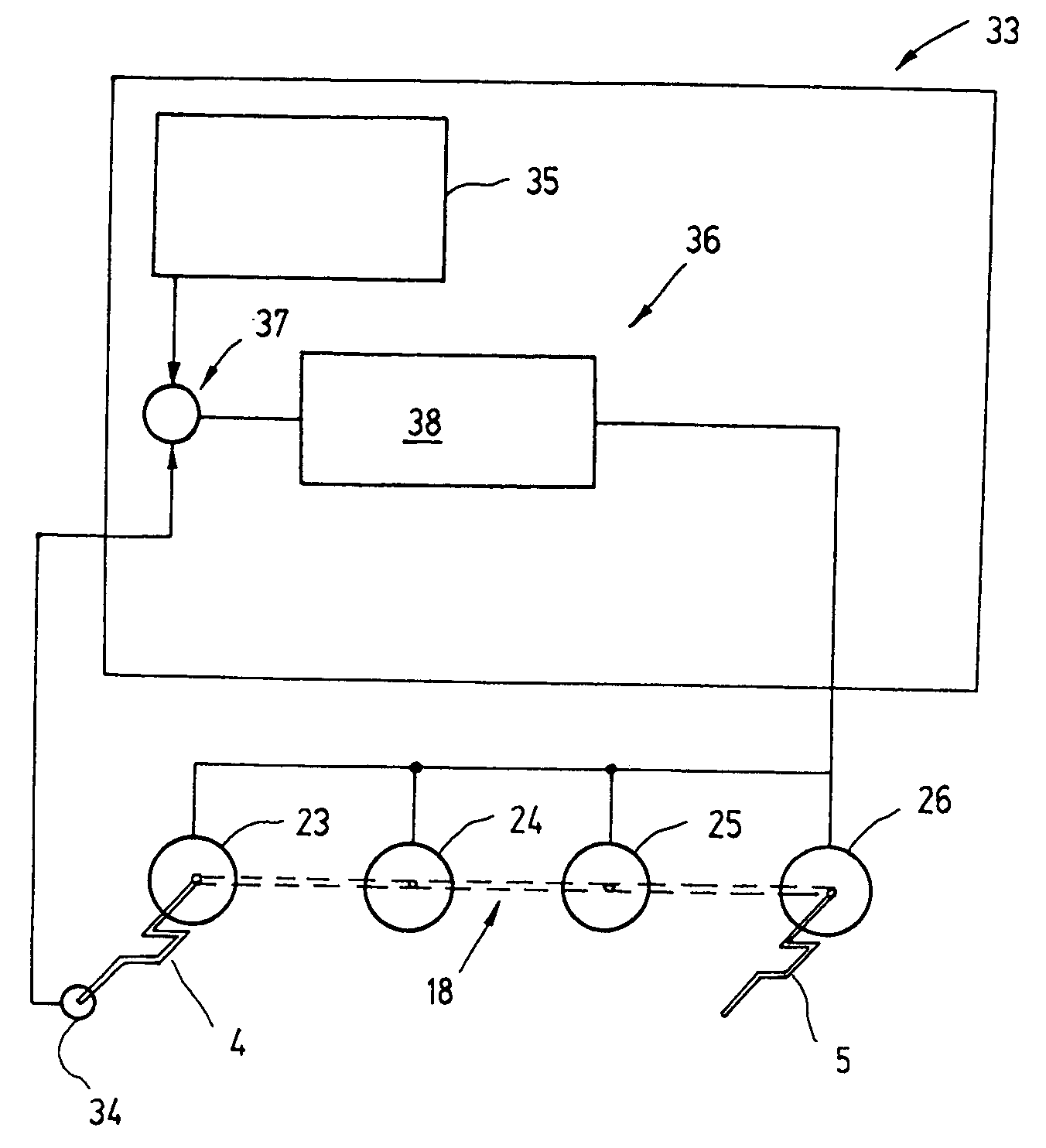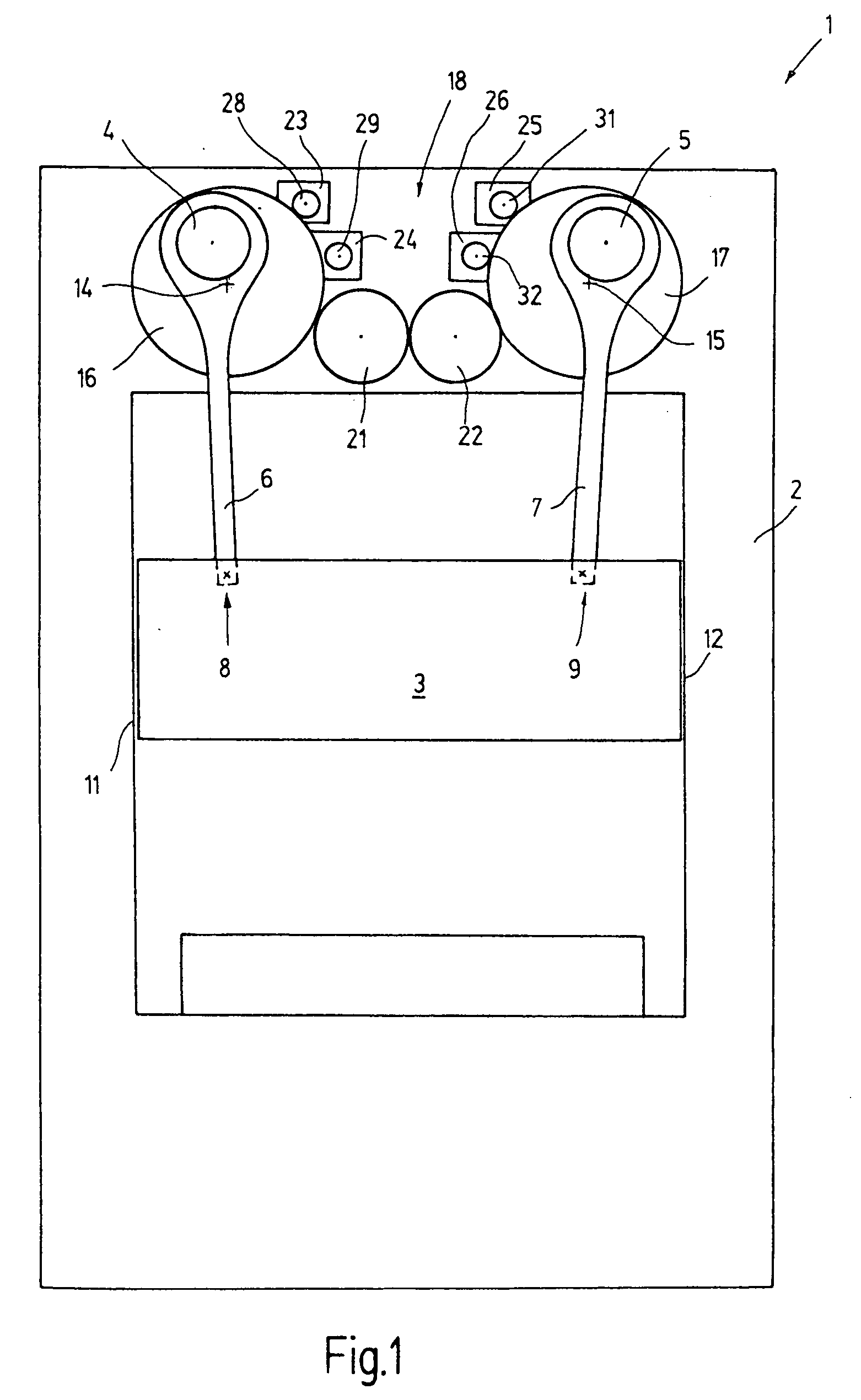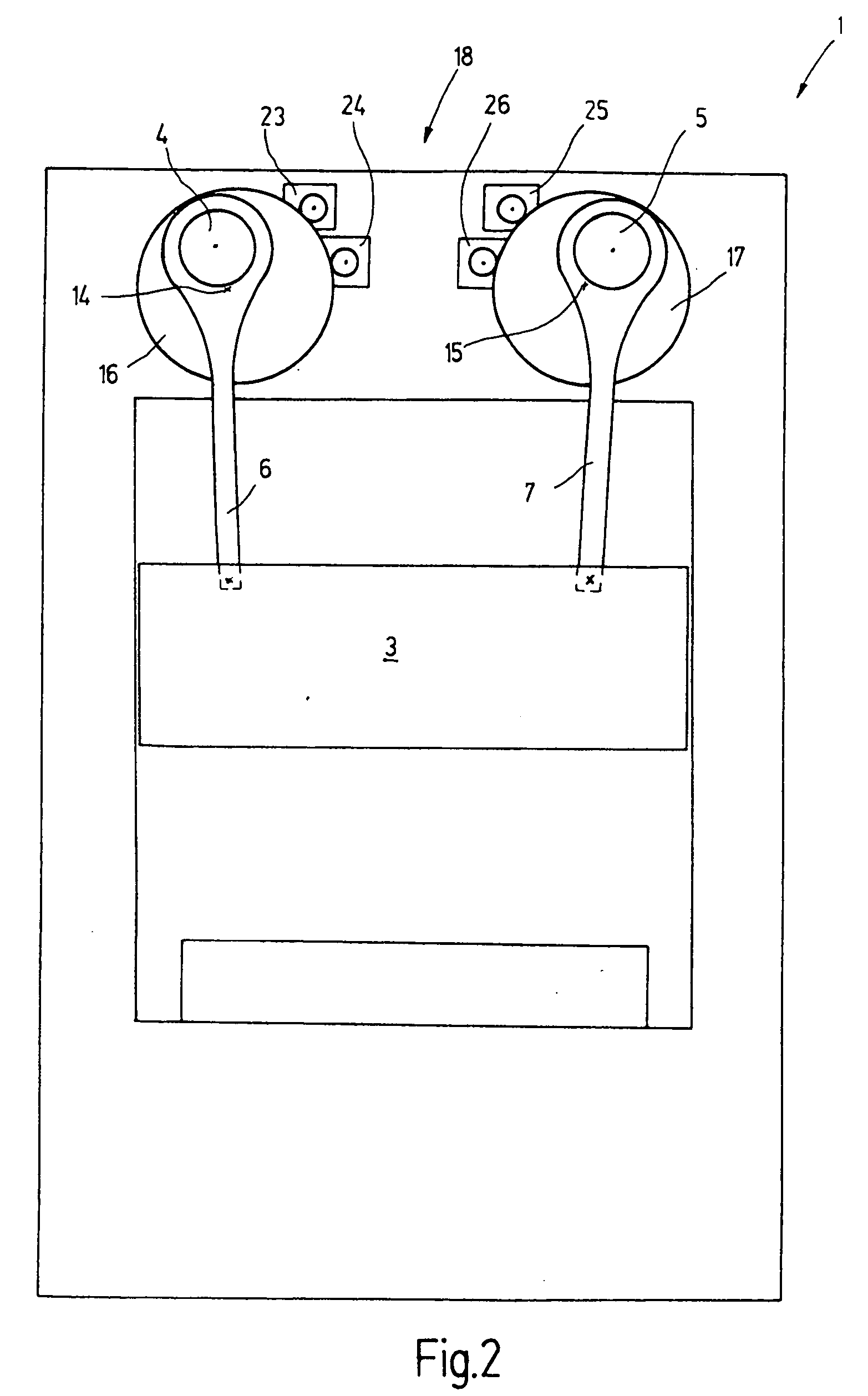Mechanical press
a mechanical press and press body technology, applied in the field of mechanical presses, can solve the problem of not as large inertia moment, and achieve the effect of reducing costs, increasing inertia moment, and slowing down
- Summary
- Abstract
- Description
- Claims
- Application Information
AI Technical Summary
Benefits of technology
Problems solved by technology
Method used
Image
Examples
Embodiment Construction
[0028]FIG. 1 shows a press 1 with a frame 2 on which a plunger 3 is supported so as to be movable up and down by two eccenters 4, 5, which are connected to the plunger 3 by connecting rods 6, 7. The connecting rods 6, 7 are pivotally connected to the plunger 3 at spaced locations 8, 9. Side guide structures 11, 12 guide the plunger 3 along the frame 3 for linear movement of the plunger 3.
[0029] The eccenters 4, 5 which may also be cranks are supported so as to be rotatable eccentrically about axes of rotation 14, 15 and are firmly connected to spur gears 16, 17, which are supported concentrically with the axes of rotation 14, 15. the spur gears 16, 17 are part of a drive 18, which includes also gears 21, 22, which couple the two spur gears 16, 17. The gears 21, 22 which are in engagement with each other and with the spur gears 16, 17 consequently provide for a drive connection between the spur gears 16, 17 and ensure their synchronism rotation in opposite directions.
[0030] The spu...
PUM
 Login to View More
Login to View More Abstract
Description
Claims
Application Information
 Login to View More
Login to View More - R&D
- Intellectual Property
- Life Sciences
- Materials
- Tech Scout
- Unparalleled Data Quality
- Higher Quality Content
- 60% Fewer Hallucinations
Browse by: Latest US Patents, China's latest patents, Technical Efficacy Thesaurus, Application Domain, Technology Topic, Popular Technical Reports.
© 2025 PatSnap. All rights reserved.Legal|Privacy policy|Modern Slavery Act Transparency Statement|Sitemap|About US| Contact US: help@patsnap.com



